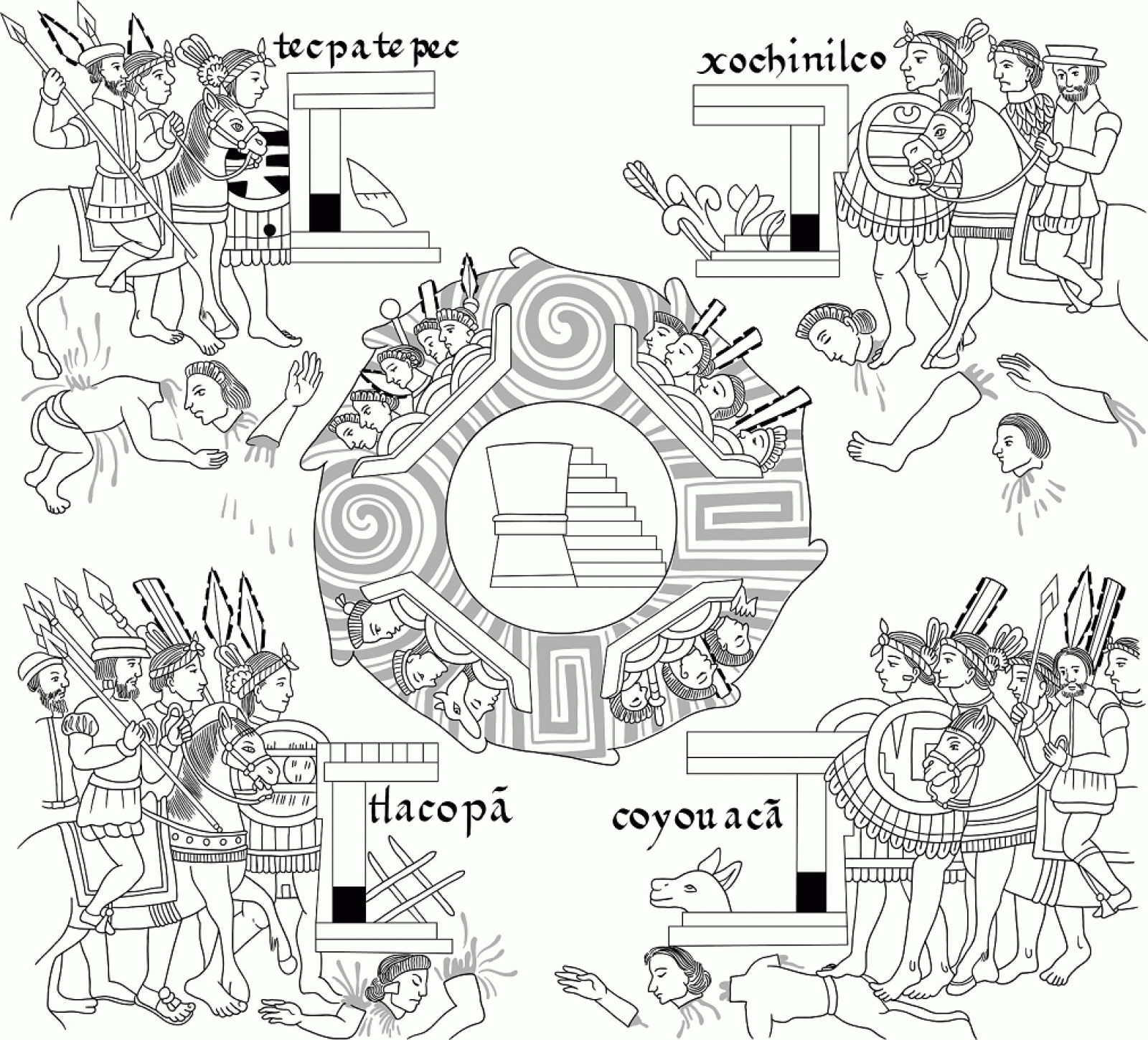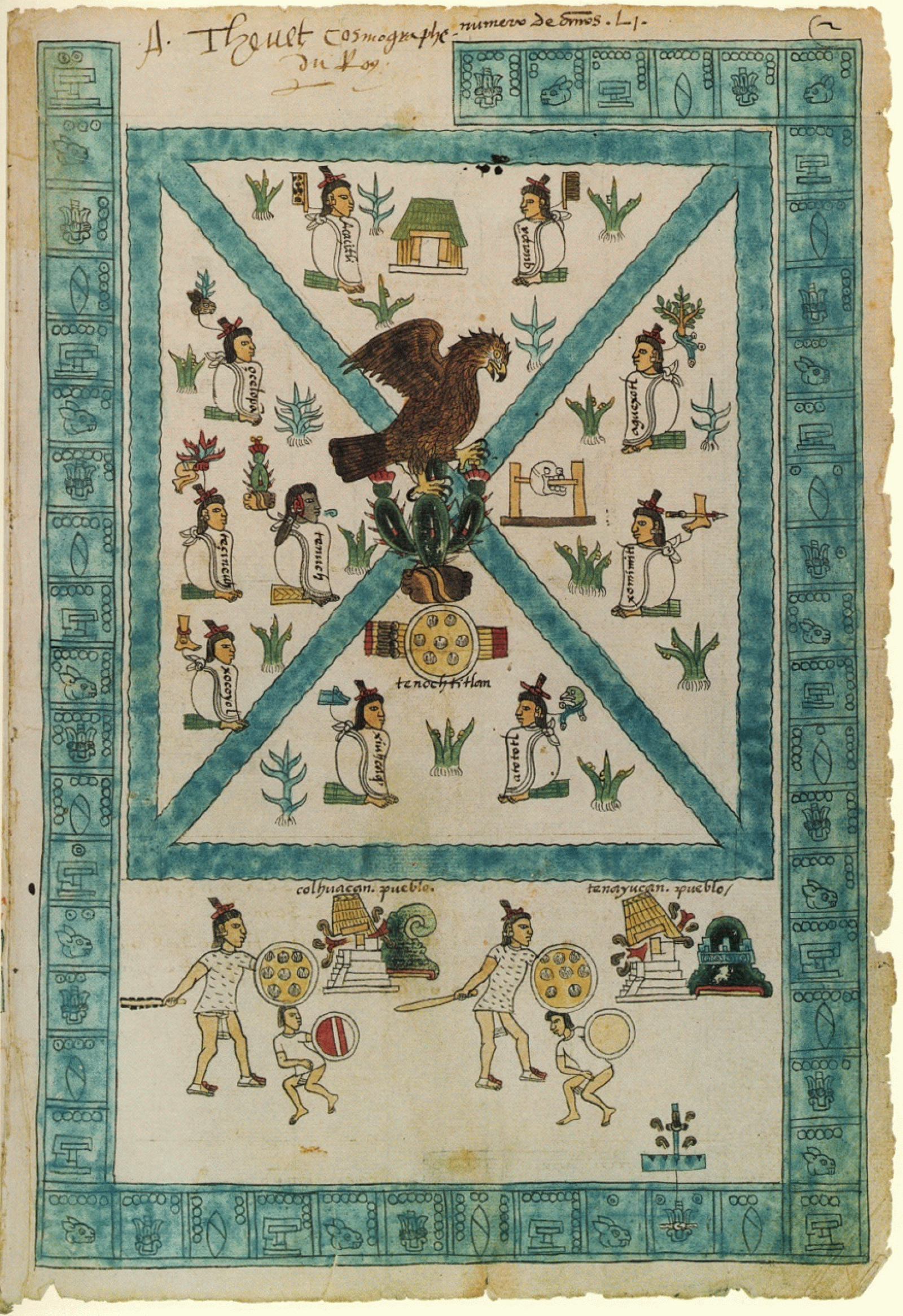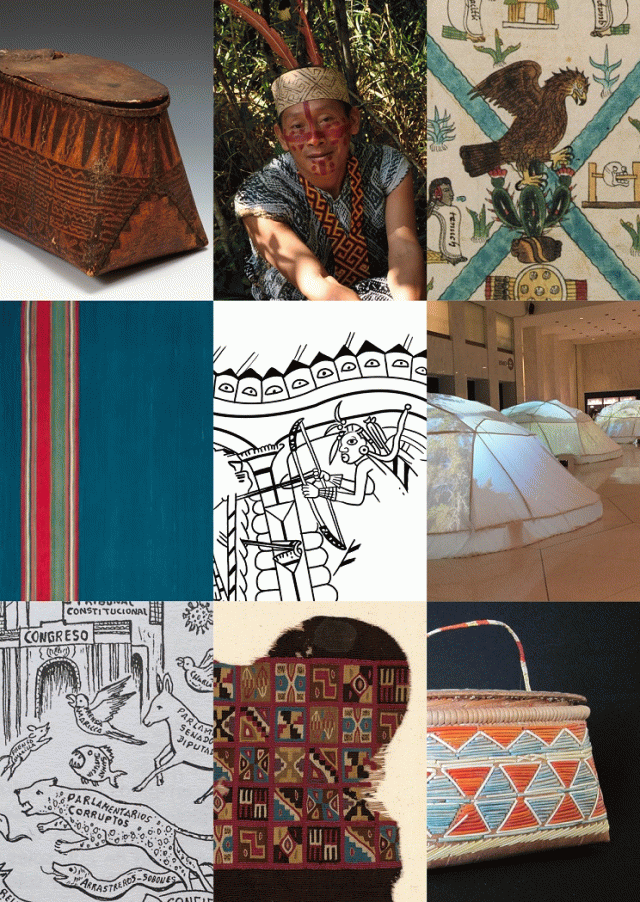Lecture series
Federico Navarrete Linares:
Lienzo de Tlaxcala and Codex Mendoza: Two Examples of Codigophagy in 16th Century New Spain
Within the framework of the KHI Amerindian Lecture Series

Lienzo de Tlaxcala (detail), Drawing by Camilo Moncada, Proyecto Lienzo de Tlaxcala, UNAM
This lecture will compare two contemporary Indigenous pictographic manuscripts from Central Mexico, namely Lienzo de Tlaxcala and Codex Mendoza, which present starkly different strategies in combining Mesoamerican artistic and scriptural conventions with European. The concept of ‘codigophagy’ developed by Ecuadorian philosopher Bolívar Echeverría will help us understand how each manuscript incorporates different visual and linguistic codes in a complex discourse, meant to convince European audiences by using Mesoamerican codes. This will show how the procedures and outcomes of intercultural productions in the 16th century were not determined by Western cultures and practices, and how Mesoamerican communication codes were perfectly capable of devouring European conventions.
Federico Navarrete Linares is a full professor at Instituto de Investigaciones Históricas of Universidad Nacional Autónoma de México (UNAM). His research focuses on the history of native peoples of the Americas and their relations with Europeans and Africans, as well as the way they have adapted to the process of colonization and State-building. Navarrete Linares is internationally recognized as a pathbreaking researcher and writer on Mesoamerican visual histories and their relation to oral and ritual traditions, as well as their adaptation to the colonial context and their appropriation of European scriptural and pictorial practices.
He has published articles on this subject in the United States, Mexico, Brazil and Germany. Likewise, he has published and lectured extensively on the military conquest of Mexico and the indispensable role played by the Indigenous conquistadors. His research interests also include racism and discrimination in contemporary Latin America. Some of his recent books are: Malintzin, or the Conquest as Translation (2021); ¿Quién conquistó México? [Who conquered Mexico?] (Debate, 2019); Historias mexicas [Mexica histories] (IIE–UNAM/Ed. Turner de México, 2018); Alfabeto del racismo mexicano [Alphabet of Mexican racism] (Ed. Malpaso, 2017); México racista. Una denuncia [Racist Mexico. A complaint] (Grijalbo, 2016). Furthermore, Navarrete Linares has published historical novels, such as El códice perdido [The lost codex] (Ed. SM, 2017).
Federico Navarrete Linares on the website of UNAM and on academia.edu.
The KHI Amerindian Lecture Series 2021 is conceived as a forum to reflect on Indigenous arts/visual cultures and aesthetic practices created on the American continent, past and present. It is organized by Sanja Savkić Šebek (KHI in Florenz – Max-Planck-Institut & Humboldt-Universität zu Berlin) & Bat-ami Artzi (Dumbarton Oaks) within the framework of the Department Gerhard Wolf & the 4A Laboratory: Art Histories, Archaeologies, Anthropologies, Aesthetics.
30 September 2021, 5:30pm
The event takes place online.
To participate please register in advance via Zoom:
https://zoom.us/meeting/register/tJclceqvqjspHdDzqAJIPRnSY_3JdsM77X1C
After registering, you will receive a confirmation email containing information about joining the meeting.
Notice
This event will be documented photographically and/or recorded on video. Please let us know if you do not agree with the Kunsthistorisches Institut in Florenz using images in which you might be recognizable for event documentation and public relation purposes (e.g. social media).




